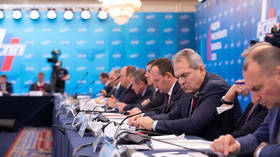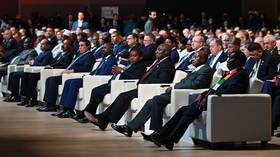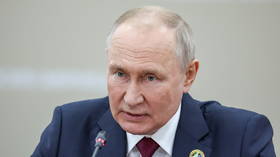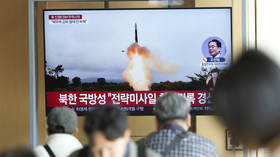Timofey Bordachev: The West’s attempt to create a Ukrainian scenario in Niger is faltering
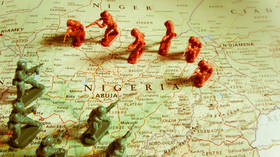
The development of the situation surrounding the possible invasion of Niger by the troops of certain countries of the Economic Community of West African States (ECOWAS) is remarkably reminiscent of the discussions that took place on the eve of this summer’s Ukrainian “counter-offensive.”
The West’s African states are in no hurry to embark on a risky adventure. Meanwhile, the US and its Western European allies are urging them to do so. Just as they have been pushing the Ukrainian military to attack fortified Russian positions throughout the spring of 2023.
But there is a significant difference. In the case of Ukraine, we are dealing with a regime that is pursuing a murderous policy towards the territory under its control. African leaders, on the other hand, are not at all willing to take risks for the interests of France and the United States. Therefore, what was a tragedy in Ukraine may turn out to be a farce in West Africa, with the end result being an amicable agreement between all parties concerned.
In both cases, however, the main reason is the same: the West’s desire not to get directly involved in military adventures and to use others to achieve its goals. And if, in the case of Ukraine, the motive for such behavior is fear of retaliation from Russia, in Africa it is a lack of opportunity and desire. All the more so as France and the US are convinced that the ECOWAS political regimes close to them are themselves interested in overthrowing the military authorities in Niger.
There are reasons for this. The coup in Niger on July 26 was the fourth in the region in less than two years (after Mali, Burkina Faso and Guinea). It clearly enjoys the support of a section of the population in one of the world’s poorest countries. In other ECOWAS countries, the situation is far from festive and the civilian authorities have every reason to fear a domino effect on themselves.
There is reason to believe that the combined forces of Nigeria and several other countries in the community will be sufficient to bring the arrested President Bazoum back to power. The only thing lacking is adventurism: So far, African leaders have preferred to adopt a wait-and-see attitude, albeit with a show of determination.
Paris and Washington, for their part, are acting in an easily recognizable manner: They are paying lip service to a peaceful solution, while in practice they are demanding that ECOWAS countries use force against the generals in Niger. It cannot be ruled out that military support has also been promised, as there are still significant French and American contingents in the country. But direct Western intervention is unlikely.
First, it would involve a certain amount of risk and the need to take responsibility for the consequences. And, secondly, a direct attack on a sitting government by Western forces would be extremely bad in terms of the battle for the hearts and minds of the developing world. In essence, the days when the US and its Western Europeans friends could attack any sovereign state on a whim are long gone. The last example was NATO’s aggression against Libya in 2011. Much has changed since then. The bloc is now trying to convince the world of its good intentions. This is especially true in the context of their struggle against Russia, which the West accuses of doing what it has been doing for two decades.
After the failure in Ukraine, even the victory of foreign troops over a few dozen rebels in Niger can be sold to the public as an impressive achievement and proof of Western omnipotence. The desire to see this is so great that it has led to ridiculous mishaps, such as the publication in an American newspaper of an article by the deposed Bazoum calling for a foreign invasion of his country.
The result is a situation in which the West itself cannot get into the fray, but insists that its regional partners do so. They, in turn, are in no hurry and are delaying the transition to decisive action in every possible way. For example, last Saturday the ECOWAS countries postponed a meeting of their military representatives on the pretext that the military regime in Niger enjoys the support of part of the population and that their opinion should be heard before any serious decisions are taken. In other words, no one in ECOWAS is particularly keen to launch a military operation against Niger. And if it does happen, the reason will be the failure of their attempts to negotiate with the rebels behind the back of the West.
Although this outcome seems highly unlikely: For all their ties with the West, African leaders still think with their heads and represent states rather than comprador regimes in certain territories. Unlike the authorities in Kiev, for whom the survival of the state called Ukraine has never been a central issue.
We see that even the less economically advanced countries of the World Majority are far more careful states than not only Ukraine, but even America’s formal allies in Poland or the Baltic republics.
And it is not just the extent of Western influence on political and economic systems. In most African states, it is very serious, based on decades of cooperation in all its manifestations. But it is now becoming clear that even the strongest ties cannot be decisive if ruling elites learn to think beyond their own individual survival.
Another important factor is that most developing countries are tired of Western arrogance and exploitation. This is particularly evident in former European colonies and dependent territories. Polish, Baltic, or Ukrainian elites cannot think for themselves because they identify with the West, even if they remain on its deep margins. They can easily sacrifice their countries for US interests. The president of Poland, for example, made this point convincingly, earlier this month, when he noted that Russia “can still be stopped without American deaths.”
In practice, however, the willingness of Ukrainians, Poles, or Baltics to sacrifice themselves does not mean anything good for the US and Western Europe. Firstly, it shows that the circle of the truly suicidal in the world community is rather narrow and that there are no fools on other continents. Secondly, the Eastern Europeans are too weak to even fight Russia, let alone maintain world domination. Against China, of course, the West has Japan. But the situation there is not so obvious, and Beijing’s growing power may well persuade Tokyo not to make fatal mistakes.
The lack of shining victories on the international stage and, above all, the growing unwillingness to pay generously to partners is leading to a thinning of the West’s power in world affairs. Russia is already benefiting from this objective process, because otherwise our situation would be worse now.
Our task is to balance this with our own efforts in the development of society, economy and military organization.
This article was first published by ‘Vzglyad’ newspaper, translated and edited by the RT ream
